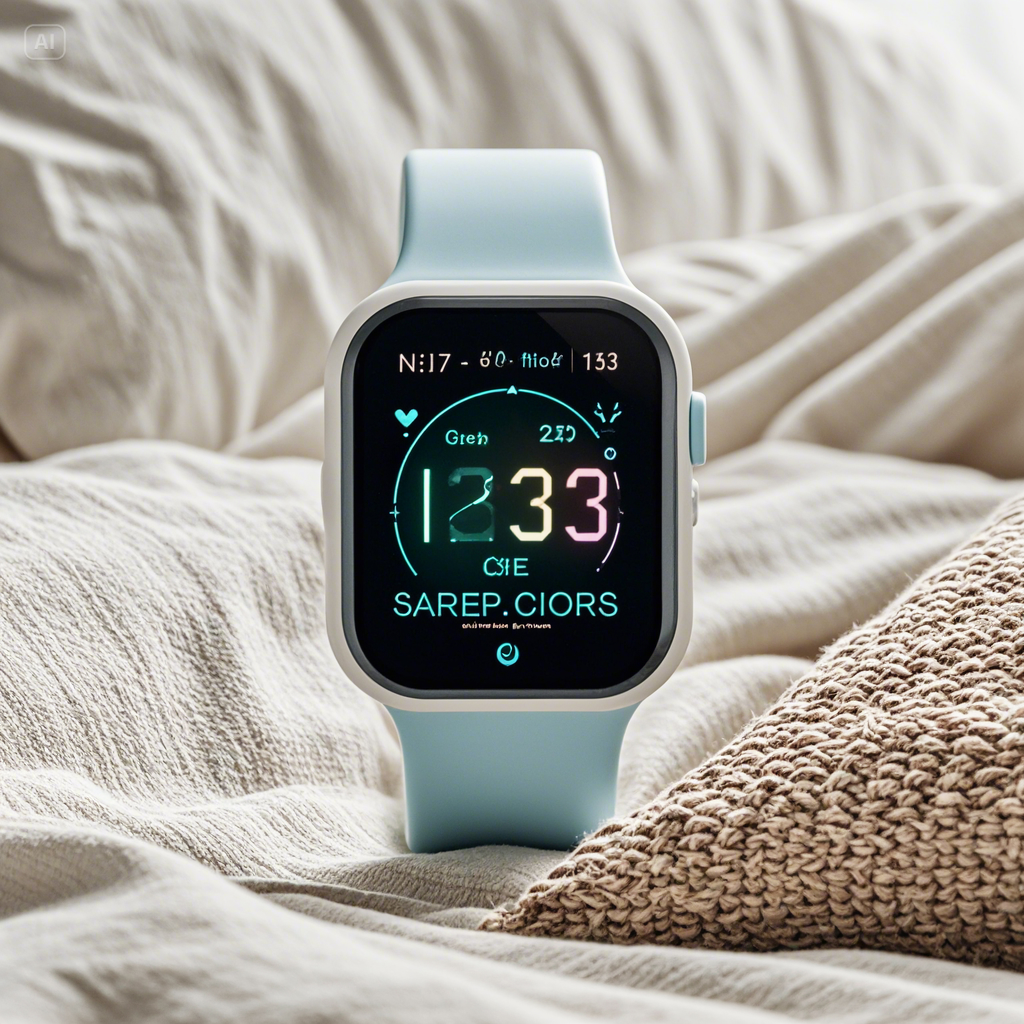
The Rise of Sleep Trackers: Do They Really Improve Sleep Quality?
The Rise of Sleep Trackers: Do They Really Improve Sleep Quality?
In today’s tech-driven world, optimizing every aspect of our health is more accessible than ever. Sleep—arguably one of the most critical components of wellness—is no exception. Enter sleep trackers: these smart devices and apps have exploded in popularity, promising to help us sleep better, recover faster, and wake up more refreshed. But do they really deliver on their promise? Or are they just another wellness trend in an already crowded market?
Let’s explore the rise of sleep trackers, the science behind them, and whether they can genuinely improve your sleep quality.
🛏️ Why Sleep Matters: The Importance of Quality Rest Before we dive into sleep trackers, let’s take a moment to acknowledge why sleep is so vital. Sleep is the body’s natural recovery process. It’s when your muscles repair, your brain consolidates memories, and your body regulates hormones. In fact, poor sleep can impact everything from your immune system to your mental health, making it crucial for both physical and emotional well-being.
So, is a sleep tracker the magic solution to better sleep? Let’s break it down.
📱 Sleep Trackers 101: What Do They Actually Do? At their core, sleep trackers are designed to monitor your sleep patterns, giving you insights into how well you’re resting each night. While some wearables like the Oura Ring or Fitbit are known for tracking sleep stages, others like apps or smart alarms focus on sleep duration, consistency, and even the ideal time to wake up. Here are the primary features you’ll encounter:
-
Sleep Stage Tracking Some sleep trackers, particularly wearable devices, offer detailed insights into your sleep stages (light, deep, and REM sleep). Knowing how much time you spend in each phase can give you a better understanding of how restorative your sleep really is.
-
Heart Rate Variability (HRV) HRV is a powerful metric often used by fitness enthusiasts and biohackers alike to gauge recovery. Higher HRV generally signals better recovery, while lower HRV may indicate stress or inadequate rest. Many sleep trackers now include HRV as part of their monitoring tools, giving you a deeper look at your autonomic nervous system’s function during sleep.
-
Smart Wake-Up Waking up during the lightest phase of your sleep cycle is key to feeling refreshed. That’s why some smart alarms or apps—like Sleep Cycle—offer features that analyze your sleep data and wake you up at the most optimal time.
📊 Do Sleep Trackers Actually Improve Sleep? The burning question: Do these trackers actually help improve sleep quality, or are they just cool gadgets? While the research is still developing, many studies show that being aware of your sleep patterns can help you make healthier decisions.
For example, a study published in the Journal of Clinical Sleep Medicine found that individuals who tracked their sleep were more likely to improve their sleep quality by making lifestyle changes, like adjusting their sleep environment or bedtime routines. And as a bonus, the more you know about your sleep, the more you can fine-tune your habits.
Success Story: Meet Sarah Sarah had always struggled with falling asleep, often lying awake for hours, staring at the ceiling. After downloading a sleep tracking app, she discovered that her deep sleep was alarmingly low, likely due to late-night screen time. Armed with this knowledge, she set a consistent bedtime, eliminated screen use before sleep, and used the smart alarm feature on her app. Within a few weeks, her sleep quality improved dramatically, and she woke up feeling energized for the first time in years.
🌱 Choosing the Right Sleep Tracker: What to Look For Not all sleep trackers are created equal. If you’re thinking about investing in one, here are some features to look out for:
Accuracy of Data Look for trackers that offer detailed reports on sleep stages, HRV, and other metrics. The more accurate the data, the more useful it will be in improving your sleep habits.
User-Friendly Interface Choose an app or tracker that’s easy to use and provides clear, actionable insights. If you’re overwhelmed by too much data, it won’t do you much good.
Smart Wake-Up Function This feature can make all the difference when it comes to waking up feeling refreshed. Trackers that monitor your sleep cycle and wake you during light sleep are often worth the investment.
Data Privacy Given the amount of personal information these devices gather, make sure the app or tracker respects your privacy and securely stores your data.
🛍️ Recommended Sleep Trackers to Explore Now that you know what to look for, here are some sleep trackers worth considering:
-
Sleep Cycle App An app that uses your phone’s microphone or accelerometer to track your sleep stages and wakes you at the best possible time. It also provides helpful insights into your sleep quality and areas to improve.
-
Oura Ring A sleek, non-invasive ring that tracks sleep stages, HRV, body temperature, and more. It’s a great choice for anyone who wants comprehensive, accurate data without the bulk of a traditional wearable.
-
Fitbit Charge 5 A well-known fitness tracker that offers advanced sleep tracking with detailed insights into your sleep stages and HRV. Plus, it doubles as an activity tracker, making it a solid all-in-one wellness device.
💤 Final Thoughts: The Power of Knowledge At the end of the day, sleep trackers can provide valuable insights that may lead to better sleep hygiene. Whether it’s understanding your sleep stages, optimizing your wake-up time, or tweaking your evening habits based on real-time data, tracking can certainly help improve your sleep quality. Of course, it’s not the only solution—establishing a calming pre-sleep routine, optimizing your sleep environment, and cutting back on caffeine are essential too.
But if you’re committed to improving your sleep, a good sleep tracker can be an excellent ally on your wellness journey.
